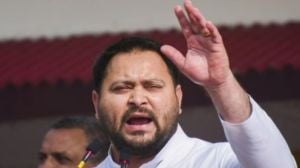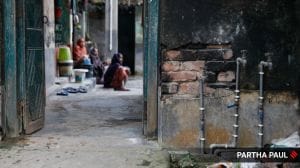US sees ‘good progress’ on arms control with Russia
The United States and Russia have made significant headway on a nuclear arms reduction pact in the last week but are not done yet,US officials said on Wednesday.
The United States and Russia have made significant headway on a nuclear arms reduction pact in the last week but are not done yet,US officials said on Wednesday.
“We are making very good progress. I can’t predict to you exactly when the agreement will be completed but we are getting closer,” Undersecretary of State William Burns told reporters as US Secretary of State Hillary Clinton flew to Moscow.
Clinton’s 36-hour trip is built around a meeting on efforts to revive peace talks between Israel and the Palestinians that have stalled in the last week over a U.S.-Israeli dispute about settlement building in occupied land.
In addition to her talks with the quartet of Middle East peace mediators — the European Union,Russia,the United Nations and the United States — Clinton will sit down with Russian Foreign Minister Sergei Lavrov on Thursday President Dmitry Medvedev on Friday.
Those meetings,which take place against a backdrop of improved US-Russian relations over the last year,are expected to focus on securing a successor to the 1991 Strategic Arms Reduction Treaty (START I) as well as on efforts to sanction Iran for its suspected pursuit of nuclear weapons.
U.S. officials have played down expectations for a breakthrough on either topic during Clinton’s trip,notably on Iran,where Beijing continues to oppose punishing Tehran for its nuclear program. Iran says the program is to generate electricity.
On US-Russia arms control,however,US officials were decidedly more upbeat. It is theoretically possible that Clinton and Lavrov could unveil an agreement this week,although analysts expect any announcement to come from the presidents themselves.
Negotiators have been working for months in Geneva to try to conclude an agreement that would fulfill a pledge by Medvedev and US President Barack Obama last year to try to cut each nation’s deployed nuclear warheads to between 1,500 and 1,675.
The key obstacles appear to be so-called “transparency” measures to reassure each side that the other is keeping its word and US plans to deploy a missile defense system in Europe,something Russia has long resisted.
The Russians have argued the agreement should include a reference to such defensive systems,while Washington has repeatedly said the treaty should deal only with offensive weapons systems.
Asked if negotiators had settled either issue,one US official who spoke on condition of anonymity replied: “I hope very much that we will be able shortly to resolve those issues,but we are still working on them.”
“It has been a productive week in Geneva,” he said,noting that Obama and Medvedev spoke about the issues on Saturday.
“We are close. We are not done. Every time you think you are done,new issues pop up in Geneva and what seemed like trivia become major political issues,” said a second US official who also spoke on condition of anonymity.
Among the major political issues that Clinton will have to deal with at the Quartet meeting is a rare,public US-Israeli diplomatic dispute over Israel’s plans to plan to build 1,600 homes for Jews in a part of the occupied West Bank it annexed to Jerusalem.
Clinton has described the announcement — made while Vice President Joe Biden was in Israel last week — as insulting.
She had made a series of demands of Israeli Prime Minister Benjamin Netanyahu on the housing project itself and on showing his commitment to the indirect peace talks that the Israelis and Palestinians agreed to only last week,just before the announcement.



- 01
- 02
- 03
- 04
- 05




























